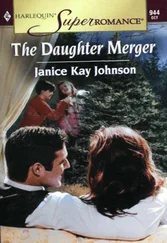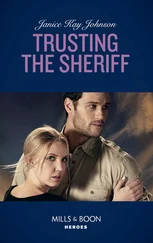“Lucy.”
“Hey,” she said. “Did I get you at a good time?”
“Yep. Just had pizza and I was thinking of kicking back and watching some baseball. How are you?” He made the question sound light, but it wasn’t. It never was. While he was in college, Lucy, only a year and a half older than him, had been brutally raped and left for dead. The rapist was never identified and arrested. She was the reason Ben had changed his major from prelaw to criminology.
Lucy had remained...fragile. She was gutsy enough to move into an apartment of her own despite their parents’ opposition, and she held a job, but to his knowledge she never dated, probably never went out at night, which limited any friendships. She lived a half life, because she could never forget. He saw hints of the same vulnerability in Nadia, but also more strength.
“I’m okay,” his sister said now. “But I was thinking.”
Ben waited.
“Would you mind if I came for a visit?” she said in a rush.
Traveling was something else she didn’t do.
Hiding his surprise, he said, “What, you think I’ll say no? I’ve only been trying to talk you into coming since the day I moved.”
“I know. Something happened that shook me up—nothing big, just the usual—” which meant she’d had a panic attack “—and, you know, I’ve been reading about your part of Missouri. I’d like to see it.”
“It’s pretty country, but not spectacular.”
“I’m curious about the Amish. They sound so gentle.”
Ben had his suspicions that behind the facade even the Amish had their share of drunks and spousal and child abuse, but he had to admit that on the whole the ones he’d dealt with were straightforward, good-humored and honest. Their belief in forgiveness was profound. Okay, he still had trouble believing an Amish woman who had suffered what Lucy had could truly forgive her rapist. But then, he was a cynic.
“They seem like good people,” he agreed. “Individuals, just like any other group.”
“Yes. I just thought...” Lucy hesitated. “I don’t know. That Byrum sounds like a nice place. Even...”
Oh, hell. He braced himself. Don’t let her say safe.
What she did say was almost worse. “Peaceful,” she finished.
He remembered what Nadia had said, word for word. I had something traumatic happen. I couldn’t get past it. I thought making a change would help.
She’d sought peace here, too, and hadn’t found it.
“I’m a cop,” he said, his voice coming out rough. “They hired me for a reason, Lucy.”
“I know, but it’s not the same as what you dealt with here, is it?”
The hope in her voice just about killed him.
“No.” What could he say but, “When are you coming?”
She would be safer here. She’d have him, and nobody would hurt Lucy on his watch.
She never forgot, and neither did he.
CHAPTER FOUR
AT LEAST, WITH today being Sunday, Nadia didn’t have to open her store. Too bad she had to spend her day doing something worse than facing the avidly nosy and the angry in person. Instead, she was going to call every single person who’d written a check or used a credit card for a purchase at Friday’s event. Karen Llewellyn had offered to help, the reluctance in her voice only part of why Nadia had insisted on handling the entire task herself. The main reason was her sense of responsibility. She’d lost the money. To the extent she could, Nadia vowed to face the unpleasant consequences alone.
She knew a few attendees, and was well aware that some calls would prove more difficult than others. Difficult being a euphemism, of course.
Strictly alphabetical was the only way to go, she decided.
With a cup of tea steeping at her elbow, she opened her laptop and began. Her very first call was to the woman she’d added as a walk-in last night, Louise Alsobrook.
“Oh, you poor dear!” was the first thing Ms. Alsobrook exclaimed after Nadia’s stiff explanation. “Didn’t somebody among your volunteers have a safe?”
“Unfortunately, no,” Nadia said. “And really...I don’t think any of us dreamed of something like this happening. The community has been so supportive. I’ve been involved with charity events in a larger city before and nobody worried about securing the money until the bank opened.”
“Greed can happen anywhere,” the woman said practically. “Well, I just looked online, and the charge to my credit card hasn’t been presented. I’ll ask my credit card company to put a stop on this number and issue a new card. In the meantime, I’ll put a check in the mail for the same amount, or even some extra. Because a lot of what’s gone must have been cash, wasn’t it?”
“Yes, unfortunately. Thank you so much, Ms. Alsobrook,” Nadia said fervently. “This is...such a nightmare, and you’ve been very kind.”
“Oh, honey, I know all of you worked so hard. Now, should I send it straight to the aid organization?”
“Yes, please.” She asked that Ms. Alsobrook add a note to let Bill Jarvis know that it was a replacement for the stolen credit card slip. He’d agreed to keep track so that the auction organizers knew who had sent money and how much.
“I’ll send that check first thing tomorrow,” Ms. Alsobrook promised.
Eyes stinging, Nadia ended the call, made a note and allowed herself a few sips of tea before she reached for the phone again.
* * *
ARMS CROSSED ATOP the white-painted fence, Ben watched foals with legs too long and spindly for their bodies gamboling in the field as their mothers grazed placidly. Gary Edgerton bred, raised and trained horses destined to be harness racers or to pull an Amish buggy. His wife was the quilt enthusiast, but both had attended the auction and spent a substantial amount.
Having heard approaching footsteps, Ben wasn’t surprised when a man’s voice came from behind him.
“A lot of money on the hoof.”
Ben turned to see Edgerton watching him rather than the mares and foals. “Cute little buggers,” Ben commented. “How old are they?”
“A couple weeks old up to three months. The last few broodmares are due any day.”
Ben knew next to nothing about horses. He’d never thrown a leg over one in his life, although he’d now ridden in a buggy and had become accustomed to the splats of manure decorating the streets of his town, as well as to the hitching rails as common as they would have been in the nineteenth century.
“Why the age spread?” he asked. “I thought foals were born in spring.”
“Mares don’t all come into season at the same time. Some breedings don’t take, so we have to wait until she’s ready again for a second go-around.”
Edgerton offered a tour, but Ben asked for a rain check.
“Guess you go at it hard when this much money is missing,” the guy remarked.
“Ms. Markovic called?”
“This morning. She and Allison had words.”
“And why is that?”
The horseman snorted. “Woman comes out of nowhere, charms her way into taking the lead on the auction, leaves with the money and, oh, oops, reports it stolen the next morning. You’re in the wrong job if you’re credulous enough to believe crap that smells a lot worse than my manure pile.”
From long practice, Ben hid his irritation successfully. “Allison thinks the same?”
“Hell, yes!” Expression bullish, Edgerton glared at Ben. “Slick a scheme as any I’ve ever heard of.”
“She put a lot of money into starting that business,” he said mildly. “Sure, Ms. Markovic would walk away with some money, maybe sixty, seventy thousand in cash. But if most people think the same as you and your wife, her business will go under. I don’t think she’d come out of it much, if any, ahead.”
Читать дальше












